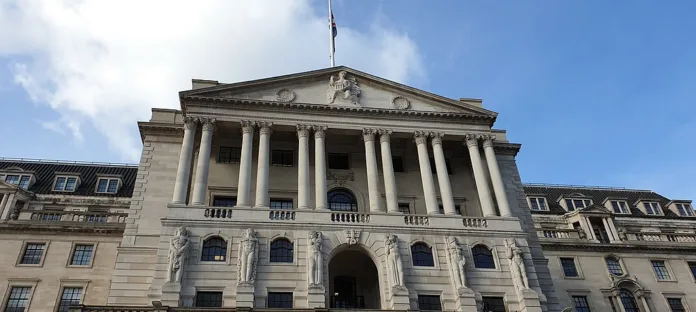Economic downturn triggers speculation on Bank of England’s interest rate decisions
The UK has officially entered a technical recession, marked by two consecutive quarters of negative economic growth, stirring discussions about potential monetary policy adjustments by the Bank of England. The latest figures from the Office for National Statistics indicate a quarter-on-quarter GDP contraction of 0.3% in Q4 2023, exacerbating the economic downturn that began with a 0.1% decline in Q3. This decline in GDP, the first yearly decrease since 2021, underscores the challenges facing the UK economy, including soaring prices that have led households to curtail spending.
The economic contraction is primarily attributed to decreases in services output, industrial production, and construction output. Despite a reduction in household spending and imports, an increase in gross capital formation suggests some resilience in investment in structures and buildings.
Embed from Getty ImagesThis recession has ignited debate over the Bank of England’s next moves, with some experts predicting an interest rate cut as early as this summer to stimulate growth. However, the central bank may prioritize long-term inflation control over short-term economic expansion. The pound’s response to the recession news has been modest, indicating market scepticism about an immediate interest rate cut.
The broader economic implications of this downturn are significant, affecting everything from individual household budgets to the national labor market. Rising food prices, elevated interest rates, and job insecurity are exacerbating financial hardships for many UK residents. In response, calls for policy reforms, particularly around Universal Credit and public services, are growing louder as the nation seeks to navigate through these challenging economic times.
As the UK government prepares for the upcoming Budget, addressing the economic and social security crisis will be paramount. With the technical recession now a reality, the focus shifts to balancing the need for economic stabilization with the imperative of safeguarding the most vulnerable segments of the population.
